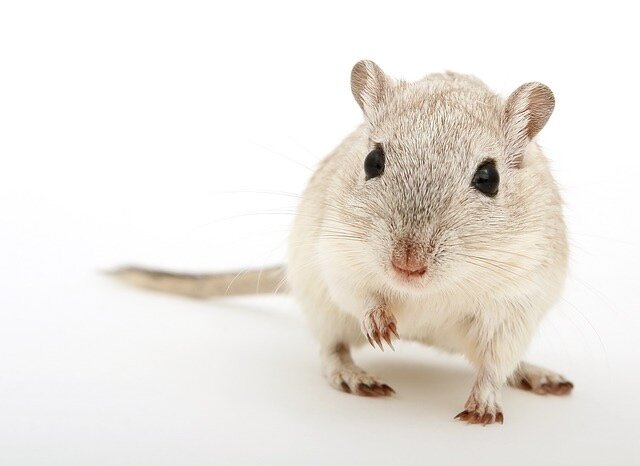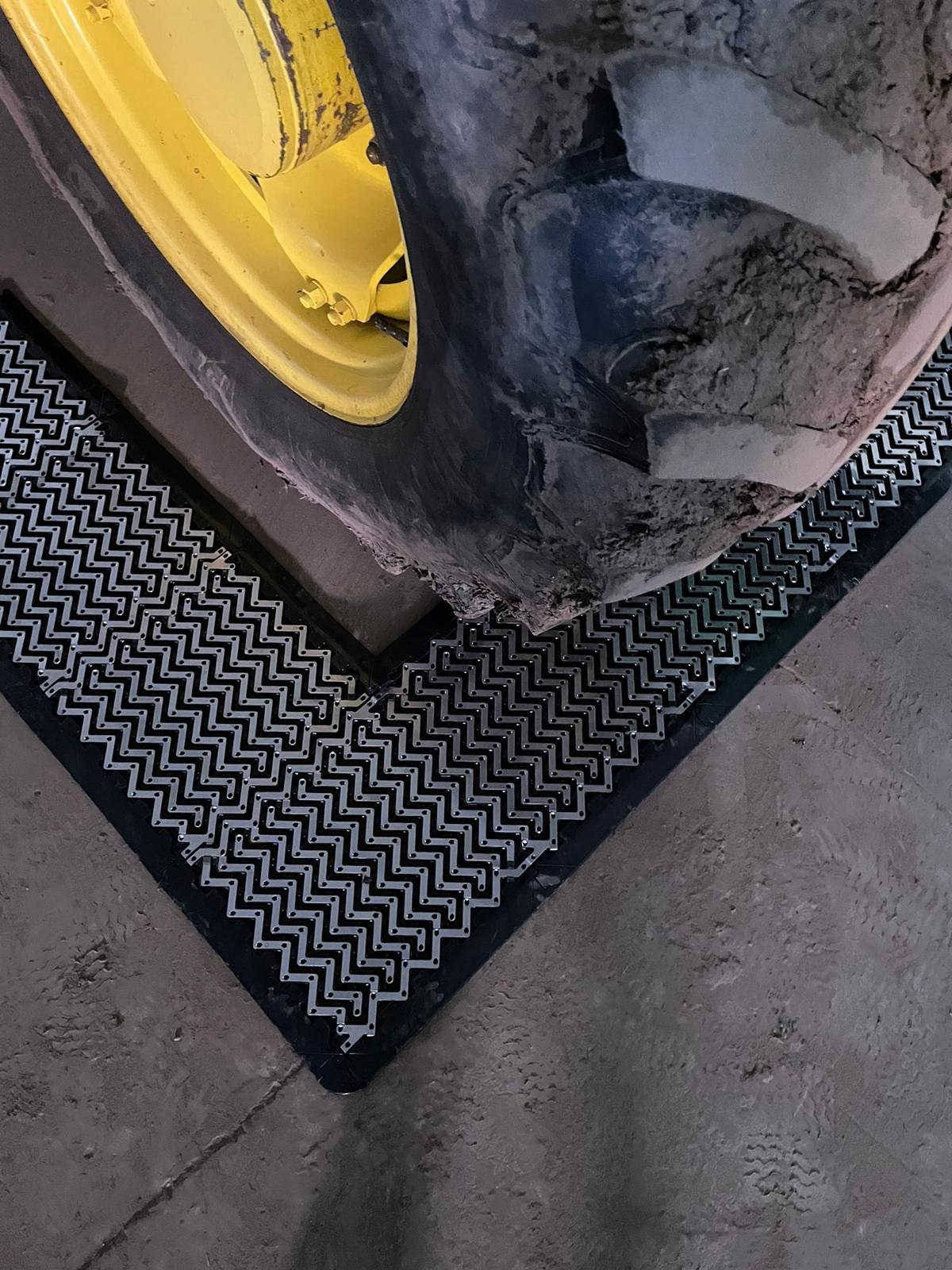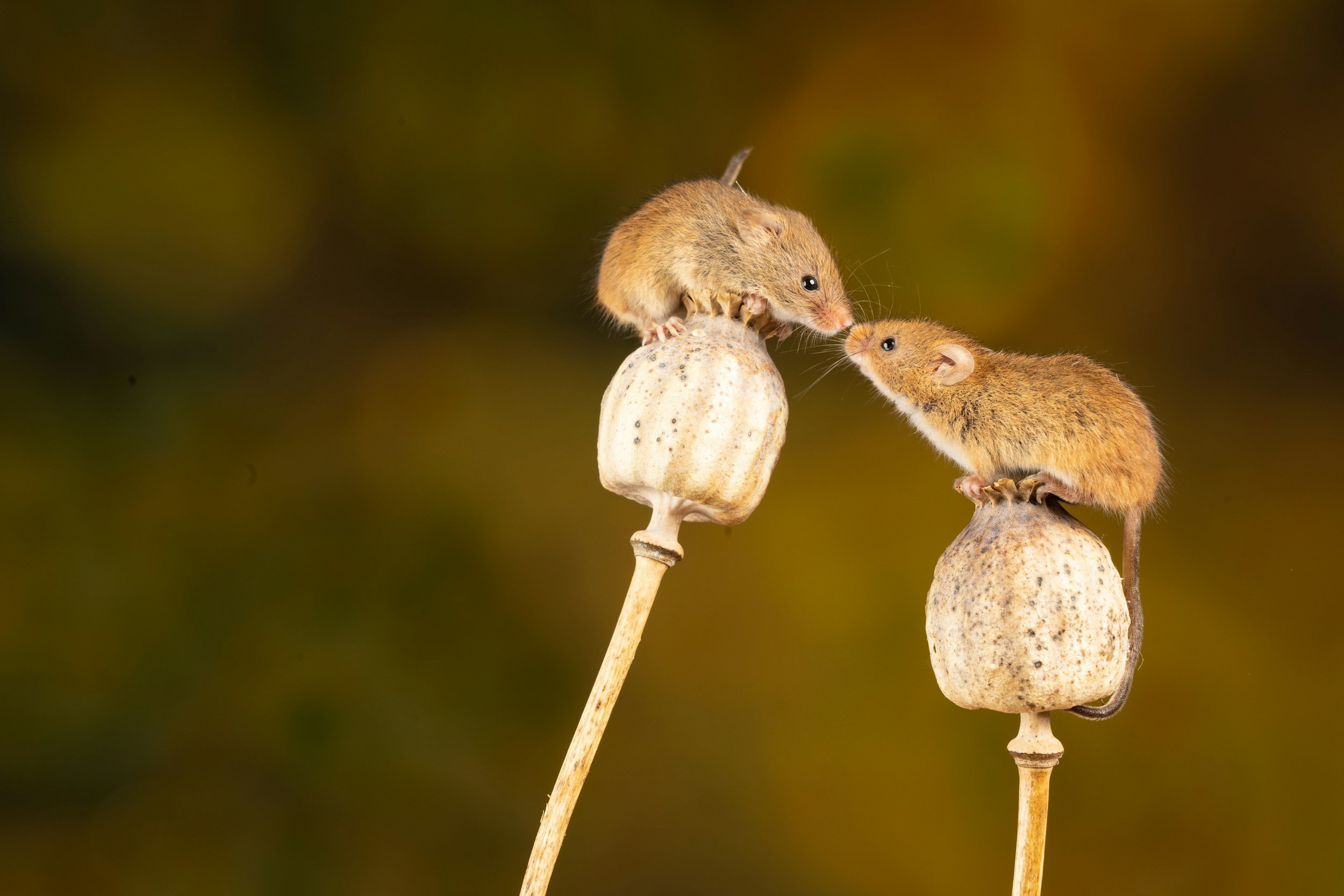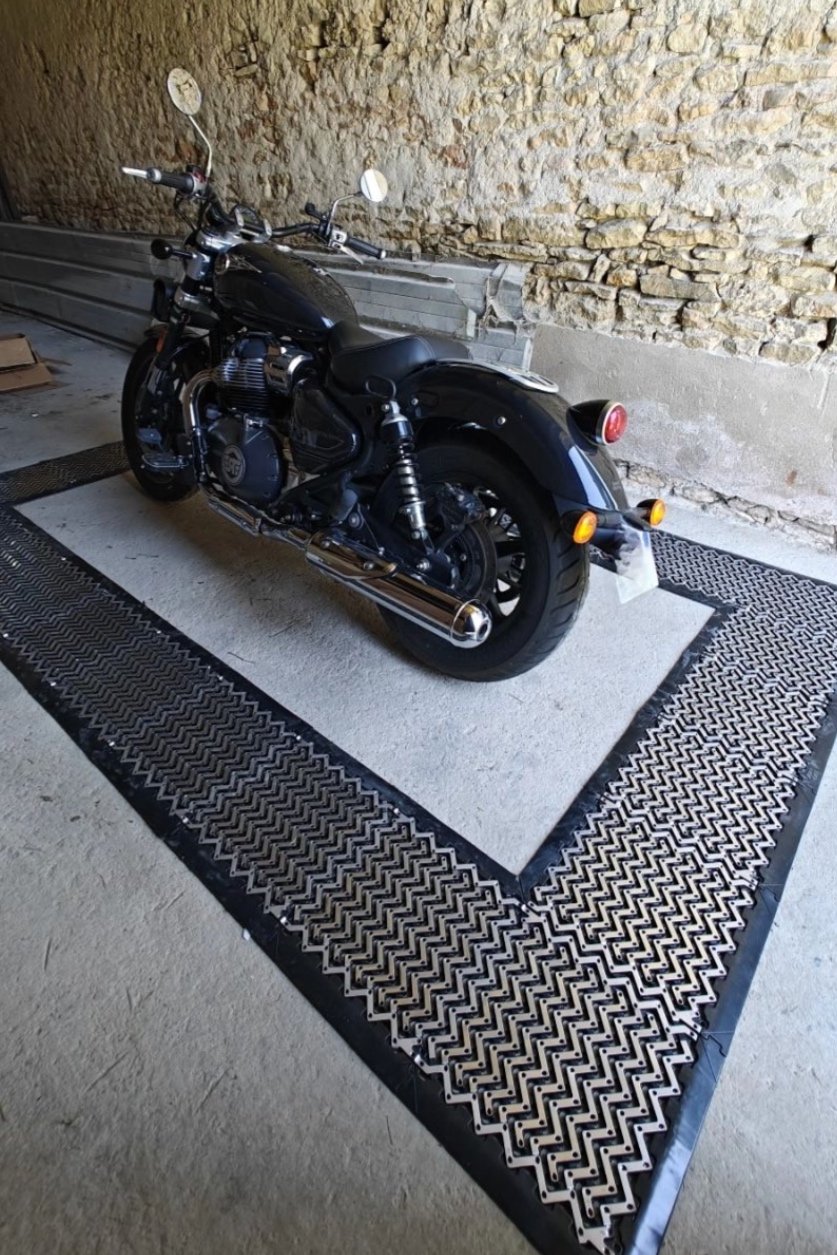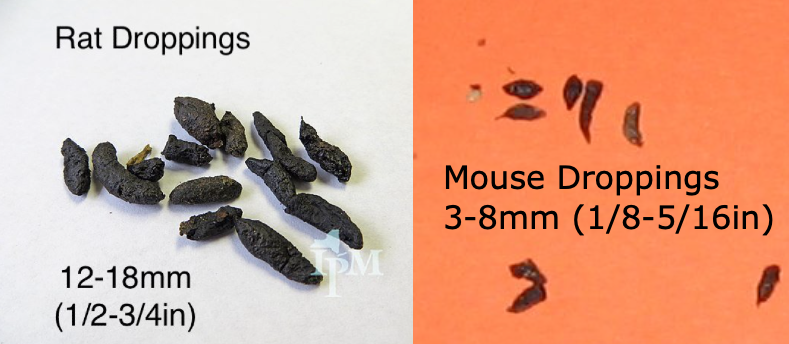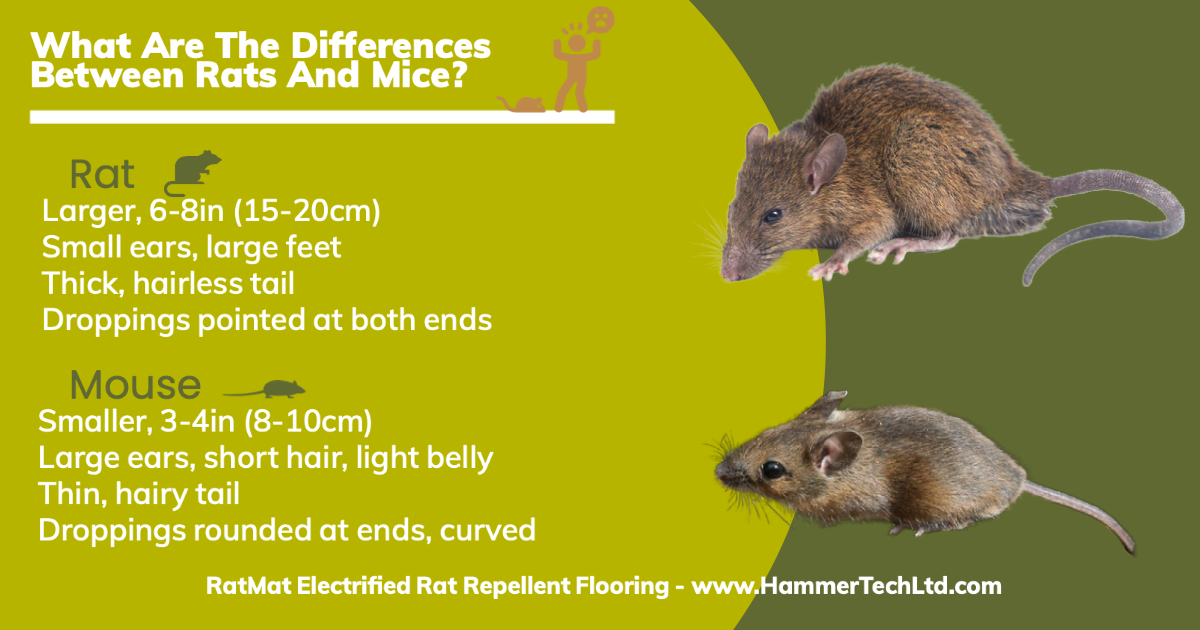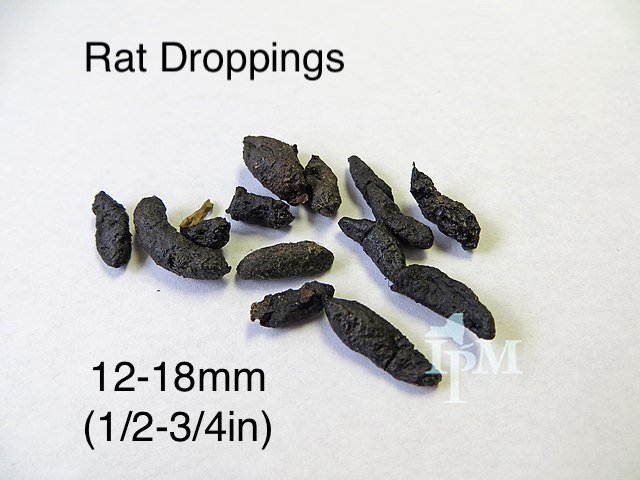What Does Rat Urine Smell Like?
Rat urine can be harmful. Wild rats can carry many different diseases which are transmitted to humans in their urine. The urine smells similar to other animals' urine because the main components are water and urea. Urea is high in nitrogen and forms ammonia when it breaks down giving it a strong odour. Rat urine also contains minerals such as calcium which can leave a chalky residue when it dries. Some people describe the smell as 'musky'. So what does rat urine smell like? It smells of ammonia.
Ammonia can cause burns to skin if it is in a strong enough concentration. If the cage of a pet rat has urine deposits on it these can be removed by mixing vinegar with water in a one to four ratio. Spray this on and leave it for about an hour. Wipe it away and rinse with plain water. If any residue remains you can scrape it off with a blunt knife.
The smell of rat urine in a room when you don't have pet rats could be a warning that you have some unwelcome residents. It can be particularly strong in areas where rats have frequently urinated, such as in attics or basements. Rats can cause a serious problem by chewing wiring, damaging clothing and ruining the food in your kitchen. There are many different traps and repellents available on the market. Some are more effective than others but you've only got to have one rat which is resistant to your method for the problem to continue.
What clues are there that a rat has urinated in your house?
There are several clues that may indicate that rats have urinated in your house, including:
A strong, musty or ammonia-like odor in certain areas of the house, particularly in attics or basements.
Dark, discolored stains on walls, floors, or ceilings.
Small droplets or puddles of urine on surfaces.
Nests or droppings in hidden areas, such as in walls or in attics.
Gnaw marks on food packaging or other household items.
Scratching or scurrying sounds coming from walls or ceilings at night.
Rats seen running around during the day or at night. It's worth noting that it's not uncommon for rats to urinate and defecate in the same area, so if you find one, it's likely the other will be nearby.
What should I do if I find rat urine in my house?
If you find rat urine in your house, it is important to take steps to clean it up and prevent further infestation. Here are some steps you can take:
Locate and seal off any entry points to prevent more rats from entering the house.
Wear protective gear, such as gloves and a mask, before cleaning up the urine.
Clean up any urine or droppings with a solution of water and a disinfectant or a mixture of water and white vinegar.
Use a HEPA vacuum to remove any remaining debris or droppings, and dispose of the vacuum bag in a sealed plastic bag.
Wash any contaminated clothing or bedding in hot water and detergent.
Consider using traps or baits to catch and remove any remaining rats in your house.
Get RatMat (GridGuard in the USA) to protect your property. It works like an electric fence on the floor to keep your property safe.
It is important to note that rat urine can carry diseases and parasites. This means it is important to take precautions when cleaning it up to prevent future infestations.
I have tried everything but I can’t get rid of the rats! What should I do?
RatMat Protecting A Car
Our new rat repellent flooring is far more effective than the other products available. We use unique hardware to create a rat-free zone to keep your sports car, classic car or factory safe from their gnawing little teeth. It works like an electric fence on the floor to permanently keep rats away. We find it is almost always 100% effective, even in areas where there has been significant damage the past.
The system is ideal for protecting high value items such as cars and air conditioning units from rodent damage. Please use the menu at the top of the page to find your nearest stockist.
What diseases does rat urine carry?
Rat urine can carry several diseases and parasites that can be harmful to humans and pets. Some of the most common include:
Leptospirosis. A bacterial infection that can cause fever, headache, muscle pain, jaundice, and kidney damage.
Hantavirus. A virus that can cause severe respiratory illness and can be fatal.
Salmonellosis. A bacterial infection that can cause food poisoning, with symptoms such as diarrhea, fever, and stomach cramps.
Rat-bite fever. A bacterial infection that can be contracted from a rat bite or from coming into contact with rat urine or droppings. Symptoms include fever, muscle aches, and a rash.
Toxoplasmosis. A parasitic infection that can cause flu-like symptoms. This can be particularly dangerous for pregnant women, as it can lead to serious birth defects.
It's important to note that most of these diseases are rare. However it is still important to take precautions when cleaning up rat urine and preventing future infestations. If you suspect you have been exposed to rat urine or droppings and have symptoms, you should contact your doctor immediately.
How can I get rid of the smell of rat urine?
Getting rid of the smell of rat urine can be challenging, but there are several methods you can try:
Clean up the urine. The first step in getting rid of the smell is to remove the source of the odor. Clean up any urine or droppings with a solution of water and a disinfectant or a mixture of water and white vinegar. Be sure to wear gloves and a mask while cleaning.
Use a deodorizer. After cleaning, use a deodorizer specifically designed to neutralize urine odor. Alternatively you can make your own by mixing water and white vinegar in a spray bottle. Spray the solution on the affected area and let it sit for a few minutes before wiping it up.
Open windows and use fans. Ventilate the area by opening windows and using fans to help remove the odor.
Use charcoal or baking soda. Charcoal and baking soda are natural deodorizers that can help absorb and neutralize odors. Place bowls of charcoal or baking soda around the affected area to help remove the smell.
Call in professional. If it is still present even after cleaning and deodorizing, consider hiring a professional cleaning service. Find one that specializes in odor removal as they have specialized equipment and products that can help eliminate the smell.
It's important to note that it might take some time for the smell to completely disappear. If you following these steps, you should be able to significantly reduce or eliminate the odor.
How can I tell the difference between a rat and a mouse?
You might be wondering whether you are looking at a rat or a mouse if you have spotted a furry four-legged creature. You may have spotted them scurrying about in the vicinity of the smell of urine . The main difference is the size; rats are much bigger with longer tails.
How can I remove stains from rat urine?
Removing stains from rat urine can be challenging, but there are several methods you can try:
Clean up the urine: The first step in removing stains is to remove as much of the urine as possible. Clean up any urine or droppings with a solution of water and a disinfectant or a mixture of water and white vinegar. Be sure to wear gloves and a mask while cleaning.
Use a urine stain remover. There are several commercial products available that are designed to remove urine stains. Follow the manufacturer's instructions for use.
Use a mixture of water and hydrogen peroxide: Mix equal parts water and hydrogen peroxide in a spray bottle and apply to the stained area. Let it sit for a few minutes, then wipe it up with a clean cloth.
Use a mixture of baking soda and water: Mix baking soda and water to form a paste, then apply it to the stained area. Let it sit for a few minutes before scrubbing it with a brush and wiping it up with a clean cloth.
Use a mixture of white vinegar and water: Mix equal parts white vinegar and water in a spray bottle and apply it to the stained area. Let it sit for a few minutes before wiping it up with a clean cloth.
Call in a professional. As with smells, if the stains persist even after trying these methods, consider hiring a professional cleaning service. Many will specialize in stain removal. They have specialized equipment and products that can help remove the stains.
As with smells, its important to note that it might take some time for the stain to completely disappear. By following these steps, you should be able to significantly reduce or eliminate the stain.
Tell me 20 facts about rat urine
Rat urine is yellow in color.
It has a strong ammonia-like odor.
Rat urine can contain bacteria, viruses, and parasites that can cause disease in humans.
Rat urine can damage buildings and household items.
Rat urine can cause allergic reactions in some people.
Cleaning and disinfecting any area where rat urine is found is important.
Rat urine can attract other rats or pests.
Rats can carry leptospirosis which can be transmitted through their urine.
Rat urine is a potential fire hazard.
Rats can urinate frequently, which can lead to a large amount of urine in a small area.
Rat urine can seep into porous materials, making it difficult to clean.
Rats will often urinate in the same areas repeatedly, which can lead to concentrated urine odors.
Rats will urinate on food, which can cause food poisoning if consumed.
Rats can produce up to 50-60 ml of urine per day.
Rat urine stains can be removed with a mixture of water and white vinegar.
In large amount, rat urine can also cause structural damage to buildings.
Rat urine can cause damage to electronic equipment.
Rat urine can be a risk factor for respiratory problems.
Rat urine can be harmful to pets.
Rat urine is often a sign of an infestation and should be addressed as soon as possible.
Dr Toby Bateson for HammerTechLtd.com

